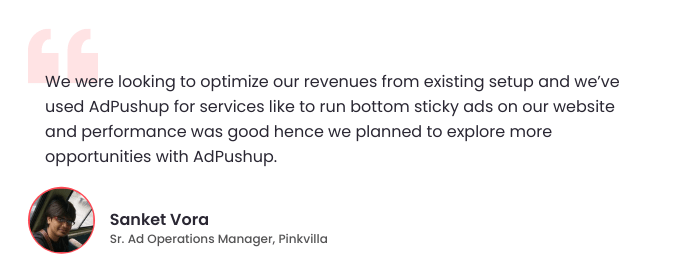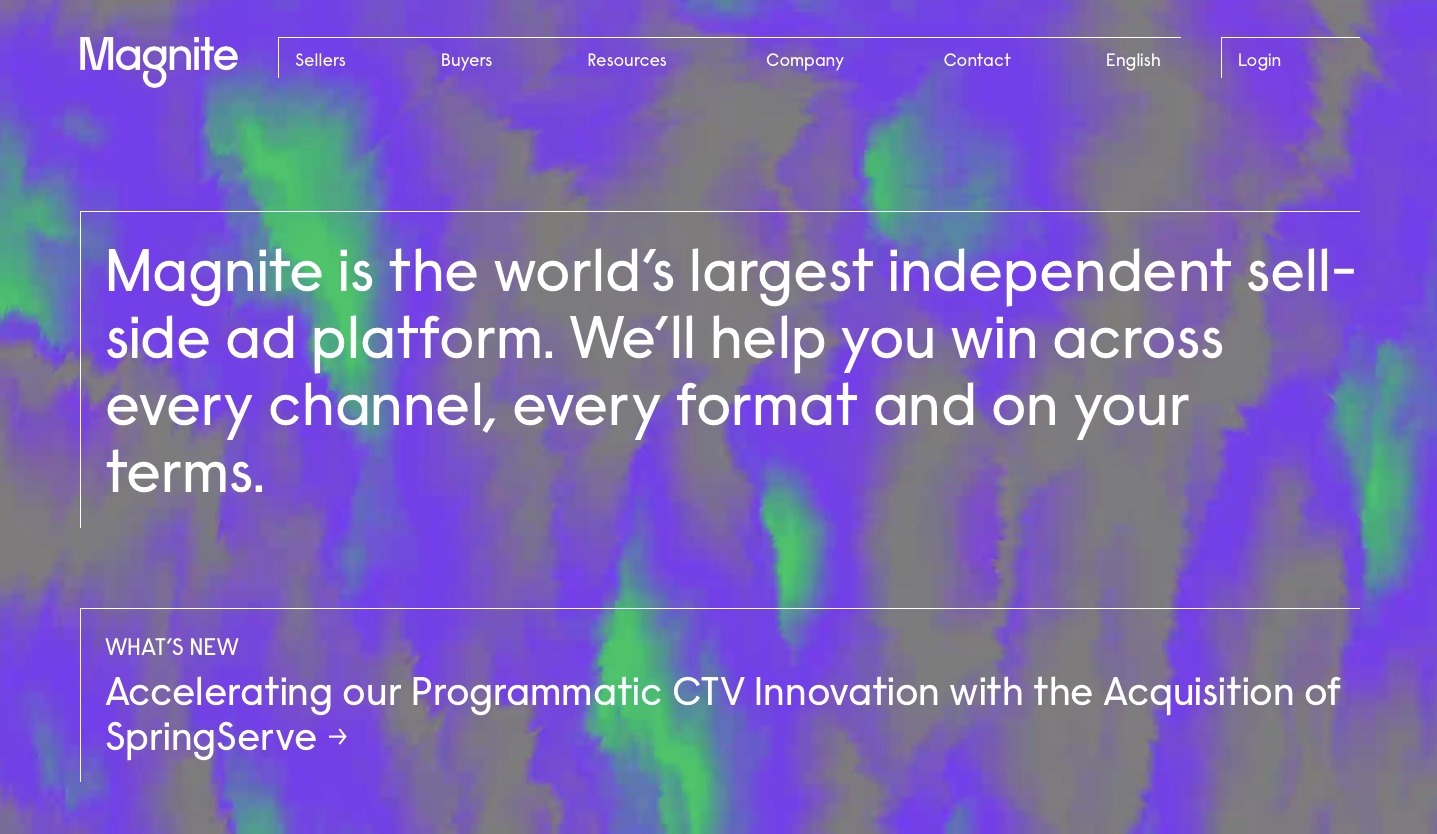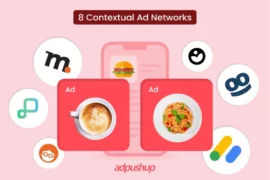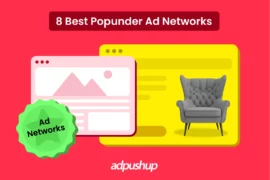Rubicon Review Factsheet:
- Founded in: 2007
- Supported model: CPM
- Supported language: English
- Reporting: Live performance dashboard for access to real-time insights, TV content reporting
- Website: www.magnite.com
- Revenue: $156.0 Million(2019)
- Employee count: 100+
Rubicon Review Overview:
Founded in 2007, Rubicon Project was a technology company known for automation of digital advertising. In 2020, Rubicon merged with Connected TV leader Telaria and rebranded themselves as Magnite.
Now, Magnite is establishing itself as one of the largest independent advertising exchanges and sell-side platforms. The company helps apps and websites thrive by providing them in-house expertise and tools to sell ads easily and safely.
Several leading brands and agencies have relied on Rubicon Project’s capabilities and technology to execute billions of advertising transactions every month.
One of the unique features of Rubicon project is they provide premium, big-screen ads that are displayed during live events and sports on television. In short, advertisers get TV inventory that assures broad reach and builds awareness.
Magnite Review: Key Features
Here’s some of the best features of Rubicon ad network:
- Connected TV: Publishers on Rubicon have grown their yield and made more business through their CTV platform. They also get granular insight into buyer patterns, bidding, and more.
- Prebid: Rubicon developers co-founded Prebid.org. Hence, they’ve the best experience when it comes to yield optimization and turnkey wrapper management. World’s largest publishers rely on them to make more business.
- Marketplace: Publishers get access to Rubicon’s brand-safe marketplace through private deals and open auctions. The private marketplace (PMP), auction package, and programmatic guaranteed (PG) capabilities give publishers 100% control over how they sell their audiences and inventories.
- Custom header: With Rubicon’s intuitive UI, publishers can optimize and configure every aspect of their header.
- Broad coverage and Audience activation: Rubicon helps publishers make the most of their data and win more business from renowned brands. They seamlessly combine disparate industry identities for enhanced coverage and to active audience-based deals.
- Omnichannel supply partner: To advertisers, Rubicon assures greater reach, lower advertising costs, innovative buyer tools, and higher traffic quality.
- Unique inventory access: Magnite makes it easier for advertisers to discover deals and access unique inventory with negotiated PG and PMPs deals.
- Cookie-less advertising: Magnite helps your ads reach an audience in a cookie-less environment and provide smarter ways to activate enriched audience-based packages.
- Dedicated account team: Rubicon helps you bank on their expertise, which means you get a dedicated account manager team to offer optimization insights and monitor campaign performance.
Also Read:
1. Sovrn Review: Factsheet, Overview, Pros and Cons
2. Popcash Review: Factsheet, Overview, Payment, Pros, and Cons

Rubicon (Magnite) Review: Advantages
1. For publishers:
At Rubicon, publishers get full access to everything they have, including the expert service and tech to keep your website ahead of the curve. But that’s not allo. Rubicon offers many more advantages to the publishers:
- Real-time insights where publishers can see live performance of their site
- As a GDPR compliant server Data protection to safeguard content data and audience information.
- Customised header with real-time analytics and intuitive UIs.
- Available as an open source software
- Granular insights into buyer patterns by episodes, series, and bidding.
- Control commitment level by enabling priority of a PMP deal and getting higher CPMs.
- Robust customer support for every ad format including display, audio, video, mobile, and DOOH.
2. For Advertisers:
Rubicon project (or Magnite) helps advertisers reach more audiences, irrespective of the channel, format, or device. It offers following advantages:
- No cookies. Rubicon helps advertisers reach audiences with publisher 1st-party data and in a cookie-less environment.
- Greater global reach across different ad formats
- Higher quality traffic and enhanced brand safety controls
- Transparent and innovative buyer tools
- Big-screen, premium TV ads at affordable prices.
- Access to live content from 100+ renowned names in TV
- Innovative ad formats including CTV, DOOH, audio, and video
- Negotiated discount with sellers
Also Read:
Adsterra Review: Factsheet, Overview, Payment, Pros, and Cons
Taboola Review: Factsheet, Features, Pros, and Cons
Rubicon Review: Disadvantages
Rubicon is a promising advertising network, but it has few drawbacks as well:
- Rubicon lacks efficient demand side tools.
- Despite its global presence, low fill rate continues to be an issue for Magnite
- Low CPMs
- Unsatisfactory loading time
- Average customer service
- Lacks online help centre or manuals
- Reporting is a bit hard to grasp
Also Read:
1. AdMaven Review: Factsheet, Overview, Pros, and Cons
2. SmartyAds Review: Factsheet, Overview, Pros, and Cons
Rubicon Review Conclusion:
Rubicon offers a solid monetization opportunity with an advanced SSP technology. It actively uses different types of programmatic monetization methods, header bidding, and direct programmatic deals. Magnite’s interface is easy to use and what you get inside is powerful enough to help you hit your revenue goals.
AdPushup vs Rubicon review:
AdPushup is a full-stack ad revenue optimization platform for publishers. The features include ad layout optimization, header bidding implementation, automated A/B testing, and adblock recovery.
The ad ops team at AdPushup takes care of all the heavy lifting of tasks related to operations and inventory management. Additionally, they have demand-partnership with top-tier ad networks and exchanges such as Google AdX, AppNexus, Rubicon, and OpenX, among others.
AdPushup is a Google Certified Publishing Partner and trusted by 300+ publishers including CNET, Deccan Chronicle, NDTV, and more.
| Features | AdPushup | Rubicon |
| Google Certified Publishing Partner |  |  |
| A/B testing for all ad types (not just in-line images) |  |  |
| AdBlock Monetization (Pro-user & ad reinsertion technology) |  |  |
| Automated Layout Optimization With ML |  |  |
| Advanced Solutions (control over HB auctions, bid caching, unified bidding module) |  |  |
| Adrefresh Solution |  |  |
| Advanced Unified Reporting (9 dimensions and 8 filters) |  |  |
| Video ads |  |  |
* The review was done in October 2021, on the basis of information available on AdPushup and GumGum’s official website. If there are irregularities, get in touch with the author.
On an average, AdPushup offers a 40% revenue uplift for their publishing partners. Simply put, Adpushup assures Managed Demand, Adblock Recovery, and Greater Revenue.
Get on a call with AdPushup to understand the potential of your inventory.
Also Read:
1. Media.net Review: Factsheet, Overview, Pros and Cons
2. Revcontent Review: Factsheet, Features, Pros, and Cons
Frequently Asked Questions:
Rubicon Project is an ad exchange and retargeting solution on a mission to automate the buying and selling of advertising.
The Telaria and Rubicon Project brands are no more. The two ad exchanges merged in 2020 and picked a new name called ‘Magnite’ to go to market together.
A supply-side platform (SSP) is an AdTech platform used for managing the distribution and supply of ad units or inventories.
A demand-side platform (DSP) is an AdTech platform that allows advertisers to buy inventory (aka ad unit) from publishers on an impression-by-impression basis.

Shubham is a digital marketer with rich experience working in the advertisement technology industry. He has vast experience in the programmatic industry, driving business strategy and scaling functions including but not limited to growth and marketing, Operations, process optimization, and Sales.





